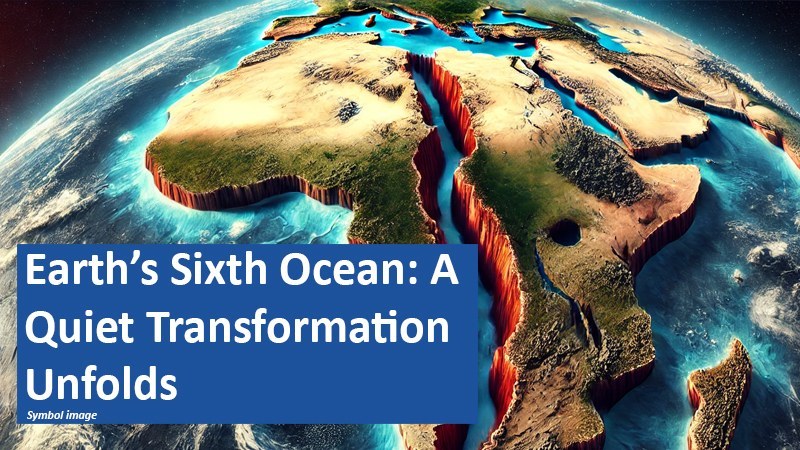A significant geological shift is gradually reshaping our planet’s surface. Scientists have uncovered evidence of a new ocean forming in East Africa, potentially splitting the continent in two. This slow yet profound process could redefine global geography and reshape economic opportunities for multiple nations.
By Julian James
Forces Driving the Rift

The emergence of this new ocean is tied to the gradual movement of tectonic plates. The African, Arabian, and Somali plates are drifting apart, creating the East African Rift—a massive fault line expanding over millions of years. For 30 million years, the Arabian Plate has been pulling away from Africa, while the Somali Plate moves in the opposite direction, steadily widening the gap. This tectonic activity is paving the way for a future ocean that will permanently alter the region’s landscape.
- African Plate: Gradually separating from adjacent plates.
- Arabian Plate: Shifting farther from the African landmass.
- Somali Plate: Retreating to create a widening chasm.
A Future Ocean’s Location
This sixth ocean is expected to emerge along the East African Rift, which stretches through Ethiopia, Kenya, and Tanzania. Over millions of years, water from the Red Sea and the Gulf of Aden will fill this vast rift, forming a new sea. As the transformation unfolds, landlocked nations like Uganda and Zambia may gain coastal access, potentially boosting their economies and reshaping regional dynamics.
Technology Tracks Invisible Changes
Although the tectonic shifts occur at an imperceptible rate, advancements in technology have enabled scientists to observe these changes with remarkable precision. GPS instruments, capable of detecting movements as small as a few millimeters annually, allow researchers to monitor the separation of these plates in real time. This data helps predict the eventual formation of the new ocean and offers deeper insights into Earth’s geological evolution.
- Precision Tracking: GPS monitors plate movement in millimeters.
- Detailed Data: Enables forecasts of future geographic changes.
Far-Reaching Implications
This emerging ocean will have effects beyond geography. The new body of water could alter global ocean currents, influencing weather patterns and climate systems worldwide. The gradual yet inevitable transformation highlights Earth’s dynamic nature and its capacity for dramatic change over millennia. As this process continues, the planet’s landscape—and humanity’s place within it—will be irrevocably redefined.
The slow separation of tectonic plates in East Africa marks a transformative shift that will reshape the geography of an entire continent. While the formation of a sixth ocean will take millions of years, its impact on global climate, ecosystems, and economic landscapes is inevitable. This event underscores the dynamic nature of our planet, offering insights into its constant evolution over time.
Based on information from www.dailygalaxy.com and own research.